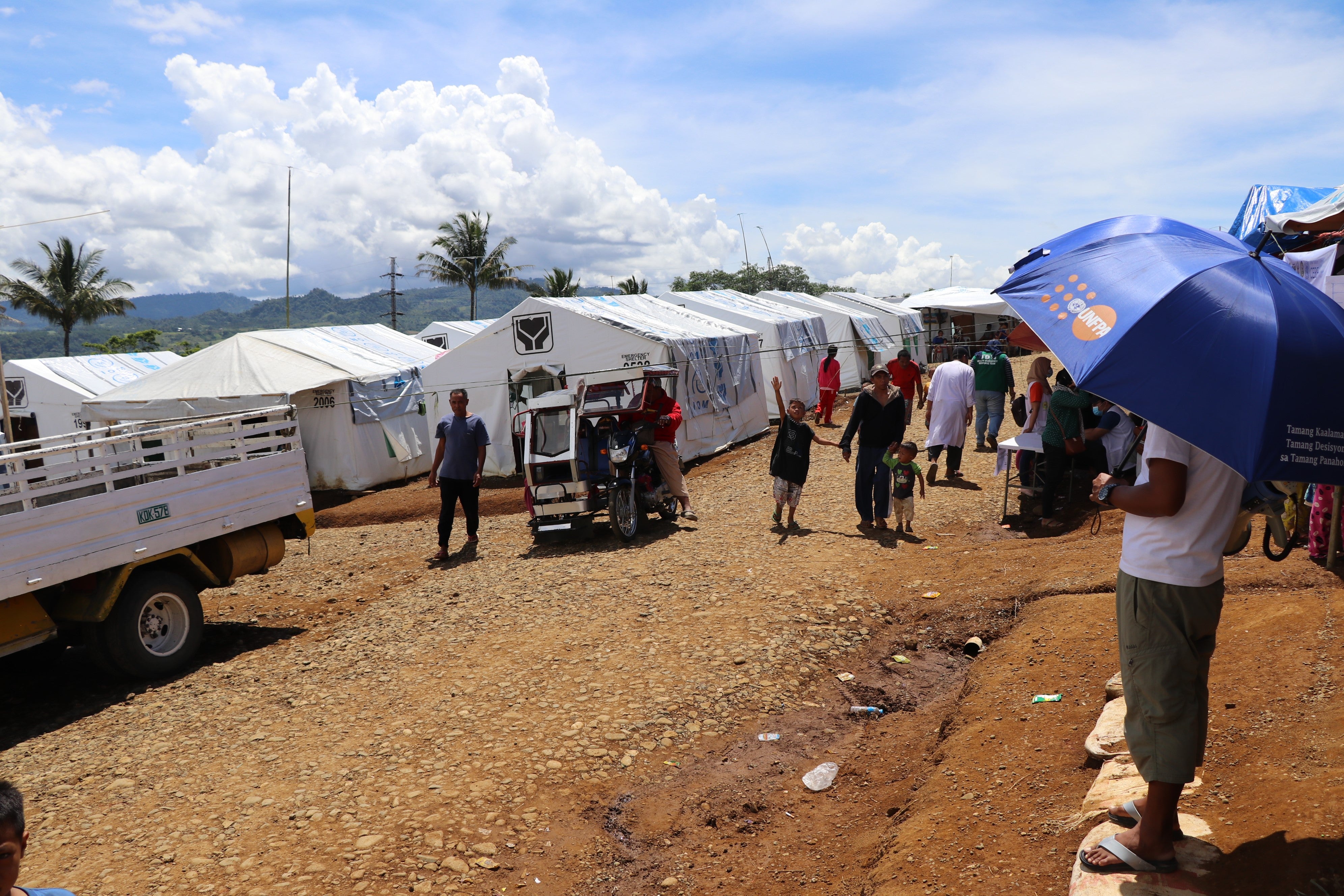News
End to conflict spells no relief for women and girls in the Philippines
- 04 September 2018
News
MARAWI, Philippines – “Everything has been burned,” Aslima Tawacal, 35, told UNFPA. “My husband has been able to see our home but there is nothing left.”
Fifteen months ago, an armed group inspired by the Islamic State in Iraq and the Levant (ISIL, also known as Da’esh) seized Aslima’s town in Marawi.
While the conflict eventually came to a halt last October, nearly 70,000 people remain displaced, living in evacuation centres, transitional sites and host communities.
“Our lives right now are really difficult,” Aslima told UNFPA. She and her family have been living in an evacuation centre in Marawi, anxiously awaiting their chance to return home. “We live in a tight space and it’s very hot, but we endure it."
Cut off from medical care and exposed to trauma, malnutrition and violence, women in conflict settings face increased risks to their health and well-being – including risks due to overcrowding and other harmful conditions in centres.
For Aslima, the weight of being displaced is even heavier.
“I gave birth a month ago,” she said. “And today, when I went for a check-up, I learned I was anaemic.”
In times of crisis, reproductive health services – including skilled birth attendance and emergency obstetric care – often become unavailable, leaving pregnant women vulnerable to life-threatening complications.
Every day, some 500 women and girls die from childbirth- and pregnancy-related causes in areas affected by conflict or natural disaster.
Malnutrition and infection pose additional threats. Conditions in evacuation centres often make it difficult for women and girls to protect themselves from infectious diseases, which can spread quickly in overcrowded environments.
To meet the needs of the roughly 2,000 displaced women and girls of reproductive age in and around Marawi, UNFPA is supporting 25 medical missions that provide reproductive health information and services. The initiative is a partnership with the Government and receives funding from the United Nations Central Emergency Response Fund.

“These medical missions are key to ensuring that pregnant women, new mothers and girls access critical reproductive health information and services, such as antenatal and post-partum health care, even in emergencies,” said Klaus Beck, UNFPA’s representative in the Philippines.
“[They also] provide a venue for vulnerable women and girls to consult and be examined by doctors to detect and manage pregnancy complications, and receive family planning information,” he added.
UNFPA has also delivered 1,250 maternity kits to women who have just given birth or are about to. The maternity kits provide maternity pads, newborn clothes, diapers and other key items.
To meet the hygiene needs, too, of women and girls enduring detrimental conditions in the centres, UNFPA is distributing dignity kits through its implementing partner, the Mindanao Organization for Social and Economic Progress (MOSEP). Containing items such as soap, sanitary napkins, clothing and torches, the kits ensure women and girls have safe access to essential hygiene products. Nearly 25,000 have been distributed since the start of the conflict.
Aslima is just one of the women in the centre to receive health services and supplies from the medical missions.
“I am really grateful,” she said, cradling her new medications. “I’m happy I received the medicines and materials. They really are helpful.”
For Aslima and the thousands of others awaiting their return home, the road ahead is long.
Still, Aslima remains resilient.
“I’m hoping in the future my family can be in a better place, and my children can continue their education,” she said.
– Mario Villamor